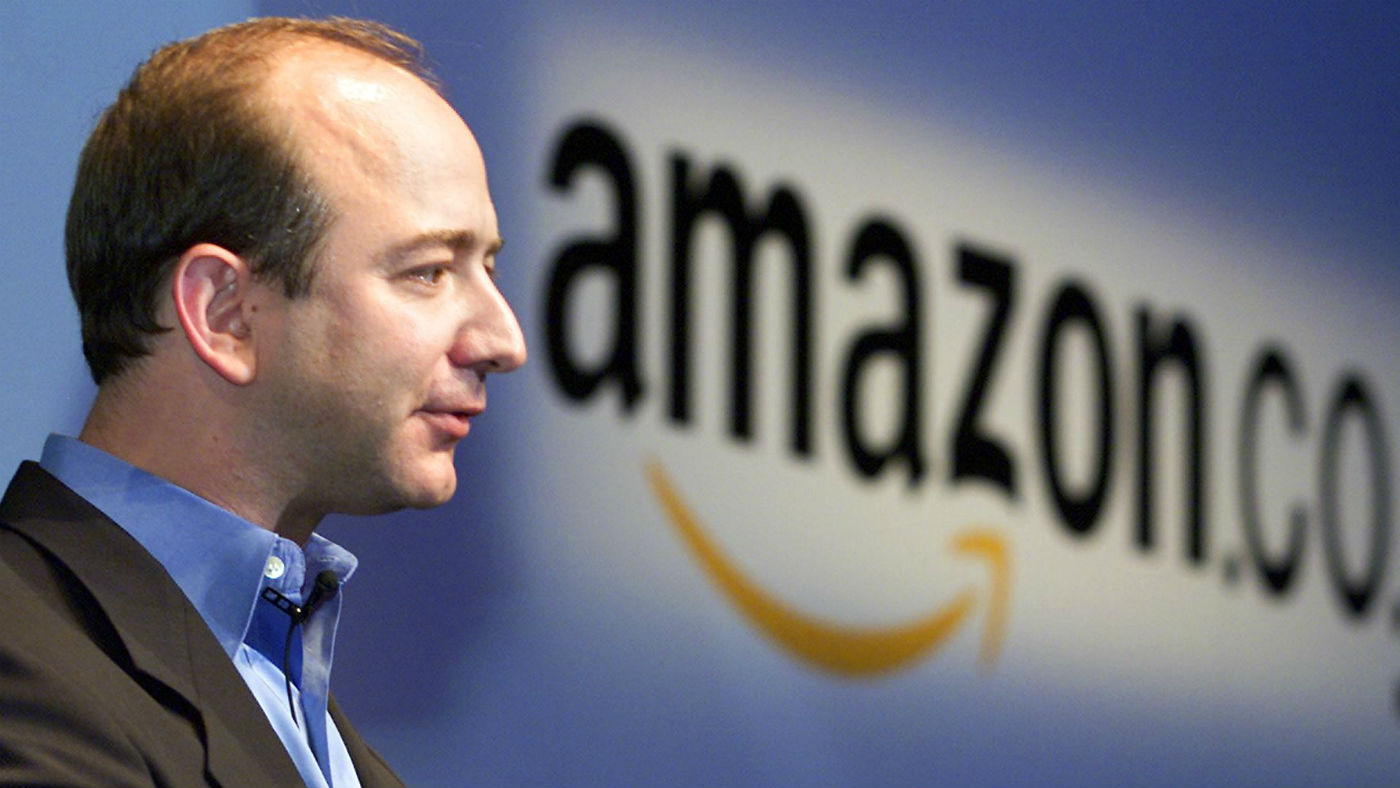Amazon at 25: where next for the online giant?
The online retailer has gone from being an ‘everything store’ to an ‘everything company’

A free daily email with the biggest news stories of the day – and the best features from TheWeek.com
You are now subscribed
Your newsletter sign-up was successful
Twenty-five years ago today, an online bookseller that would go on to change how we shop and in the process make its founder, Jeff Bezos, the richest person on Earth, incorporated in Seattle.
“By now, the official story is well-known: Bezos left his job at a New York hedge fund, drove across country with his then-wife, MacKenzie, and launched from a Seattle garage,” says Bill Murphy in Inc.com.
“Almost everything in life seems inevitable in retrospect, but this was a radical, crazy idea at the time,” he adds.
The Week
Escape your echo chamber. Get the facts behind the news, plus analysis from multiple perspectives.

Sign up for The Week's Free Newsletters
From our morning news briefing to a weekly Good News Newsletter, get the best of The Week delivered directly to your inbox.
From our morning news briefing to a weekly Good News Newsletter, get the best of The Week delivered directly to your inbox.
For context, in 1994 just 0.45% of the world had access to internet. The first mainstream web browser Netscape would not launch until November that year, sites like eBay and Google were still years away. The White House had yet to launch its website and Mark Zuckerberg was 10.
Amazon, or Cadabra Inc. as it was first known, was not the first bookstore to sell online, Books.com launched in 1992, “but it behaved like a local store, whose shopkeeper knew customers by name – a bell even rang in the company’s Seattle headquarters every time an order was placed,” says Venkatesh Shankar in The Conversation.
Bezos set his sights on making it an “everything store”, “The company would go on to become not just an everything store, but an ‘everything company’” writes Shankar, branching out from online shopping to food, communications, entertainment and most profitably cloud computing.
This evolution has been reflected in its astronomical growth and ballooning value. It is currently the second most valuable company in the world behind Microsoft, with a market capitalisation hovering around US$1 trillion, greater than the GDP of nearly 200 countries.
A free daily email with the biggest news stories of the day – and the best features from TheWeek.com
If you had bought $100 worth of its IPO shares in 1997, it would be worth about $120,000 today. Bezos, who retains a large stake in the company is now the world’s richest person, worth over $130bn according to Forbes. The wealth generated by the Amazon juggernaut has fuelled his childhood dream of building a rocket to the Moon and has enabled him to buy The Washington Post among other ventures.
“Amazon embarks on its second quarter century in business more visible and powerful than ever in Seattle, the nation and across the globe, but it also faces a mounting array of challenges and criticisms,” says Benjamin Romano in The Seattle Times.
While the company has been one of the poster children of the internet age, the model it has driven has been blamed for the demise of bricks-and-mortar stores, the decline of the high street and resulting decimation of many town centres.
The company has also faced growing backlash over workers’ rights and conditions.
“What happens after a tech giant dominates an industry is increasingly a question as lawmakers and regulators begin taking a harder look at technology companies, asking when dominance shades into a monopoly,” says The New York Times.
This has driven Amazon’s diversification into other sectors.
“More immediate questions relate to Amazon’s entry in two stodgy yet critical industries: health care and financial services,” writes Shankar, but “although Amazon has disrupted many industries, these two are heavily regulated industries in which the company hasn’t had much experience.”
The company has also bet big on AI. It is even pioneering anticipatory shipping where shoppers are mailed items without ordering them but which the Amazon algorithm thinks they want. Shoppers can keep the items they like and return those they don’t want at no charge.
Speaking to MarketPlace, Amy Webb, founder of the Future Today Institute and author of The Big Nine: How the Tech Titans and Their Thinking Machines Could Warp Humanity said Amazon’s business has gone way beyond delivering stuff to your door and will keep evolving.
“Once the boxes and the things that we’ve ordered arrived at our homes, the data pipeline gets shut off. If you’re suddenly now talking to all the different devices in your home (speakers, microwaves, refrigerators, medicine cabinets), that data pipeline gets turned back on. That’s important because it opens new possibilities for data collection, all kinds of additional biometric data, like what’s their emotional state? Has the cadence of their voice changed? Are they manic or are they depressed? We’re talking about a significant ecosystem, which in many ways is making our lives easier, but the ways in which that’s happening is invisible to us.”
“Amazon has reshaped retailing permanently in the last 25 years” Shankar concludes. “In the next 25, it might totally redefine how the world shops.”
Elliott Goat is a freelance writer at The Week Digital. A winner of The Independent's Wyn Harness Award, he has been a journalist for over a decade with a focus on human rights, disinformation and elections. He is co-founder and director of Brussels-based investigative NGO Unhack Democracy, which works to support electoral integrity across Europe. A Winston Churchill Memorial Trust Fellow focusing on unions and the Future of Work, Elliott is a founding member of the RSA's Good Work Guild and a contributor to the International State Crime Initiative, an interdisciplinary forum for research, reportage and training on state violence and corruption.